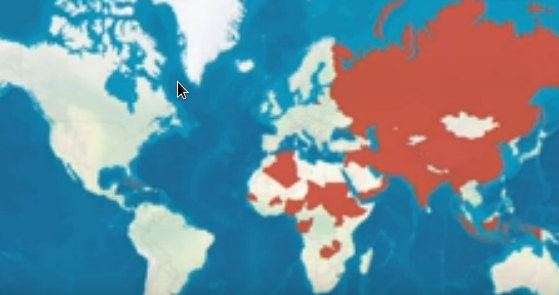Taliban's future plans and update from them
Abdul Qahar Balkhi, from the Taliban’s Cultural Commission, in the Taliban’s first official interview since it took control of Kabul a week ago (talking to AJ):
On government formation
"The consultations are ongoing, and of course it is going to be an inclusive system.
"The talks include whether the capital will remain in Kabul or move to [the group’s birthplace] Kandahar.
On the chaos at Kabul airport
Balkhi: We are in talks and we have a relationship, a working relationship, with the Americans about the security arrangement.
The outside checkposts are in our control, and inside is under the control of the US forces, and we are in constant contact with one another.
On the lack of trust between people in Kabul and the Taliban
Balkhi: It is very unfortunate for people to be rushing to the airport the way they are at the moment.
Because we have announced a general amnesty for everyone in the security forces from the senior to the junior level… this fear, this hysteria that has taken place is unfounded.
On the swift takeover of Kabul
Balkhi: The developments were so fast that all people were taken by surprise.
When we entered Kabul, and it was not planned because we announced initially that we do not want to enter Kabul, and we want to reach a political solution before entering Kabul and making a joint and inclusive government. But what happened was that the security forces left, abandoned their places, and we were forced to ask our forces to enter and take over security.
On governance and women’s rights
Balkhi: The point of intra-Afghan talks was precisely that we come to an agreement about what those rights actually entail.
Islamic law is known to everyone and there are no ambiguities about the rights of women, the rights of men, not only women but also the rights of men and children. And right now we’re in a situation that hopefully during the consultations there will be clarifications about what those rights are.
On the reported targeted killings and harassment of government and civil society figures
Balkhi: OOn the chaos at Kabul airportur foremost priority is the discipline in our own ranks, and not enforcing laws on others but enforcing it on ourselves first and then giving it an example for the rest of society to follow suit. So we’re the first ones and our members, if they are involved in such things, [they] will be the first to be prosecuted.
On the group being labelled ‘terrorists’
Balkhi: I don’t think people believe we are terrorists. I think it’s just “the war on terror”, it was just a term coined by the United States and anyone [who did] not fall in line were labelled terrorists.
...
What a difference it makes to hear a non-aggressive man speak English. It's the first time I've heard anything other than Taliban elders speaking with subtitles underneath. While they may have sounded a bit rough or stern, perhaps part of that was simply a rougher, sterner way of just speaking normally there.
Although some wondered if it was just a charm offensive, not representative of the Taliban.
AJ English on YT: Taliban official reveals more about the group’s vision for the future 
